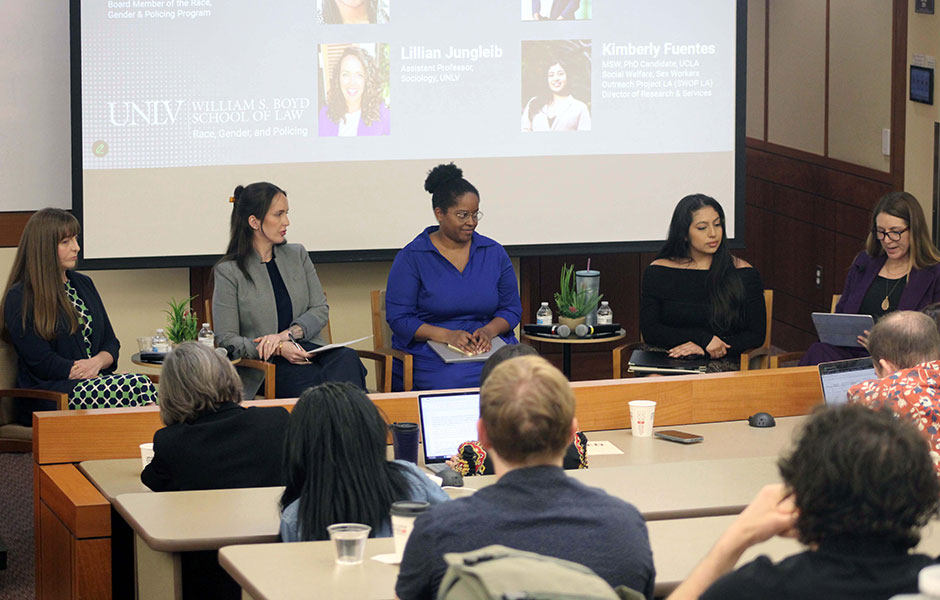Symposium on sex work emphasizes listening to those who’ve lived it

Written By Paul Szydelko
A symposium hosted by the Race, Gender & Policing Program at Boyd Law in April called attention to how commercial sex work is policed and how to protect sex workers from violence and nonconsensual sex. Co-sponsored by the ACLU of Nevada and the Scholars Strategy Network, the symposium is available on Boyd Law’s YouTube channel.
Public discourse about sex work in Nevada routinely considers trafficking, industry regulations, and decriminalization. The symposium, with a wide range of participants, added in discussions of sex workers’ autonomy and how to enhance their ability to avail themselves of police and prosecution when they become victims themselves.
The symposium was co-organized by, Barb Brents, a Professor Emeritus of Sociology at UNLV and an international expert on the political economy of sex work, based on her almost 40 years of research. As a panelist at the symposium, Brents reviewed conclusions from her most recent research on sex work and legal consciousness, which included interviewing those engaged in sex work.
Panels also featured those with lived experience who have turned to academic research and advocacy, including Kimberly Fuentes, a PhD student in social welfare at UCLA. She explained her efforts in participatory action research, which emphasizes collaboration between researchers and their subjects to create immediate real-world benefits for those participating.
Sex workers, who come from all walks of life, are vulnerable to violence and other infringements on their dignity and autonomy,” said Boyd Law Professor Eve Hanan, who moderated the event. “Having those voices heard in the law school forum and [discussing] what legislation would protect them was very enlightening.”
Hanan said the symposium aimed to help law students and the community “think about sex workers’ safety and well-being in a broad way, and in a way that does not either blame or minimize the difficulties of that situation. And that they’ll appreciate the need to listen to the voices of people with lived experience when they engage in decision-making or advocacy.”